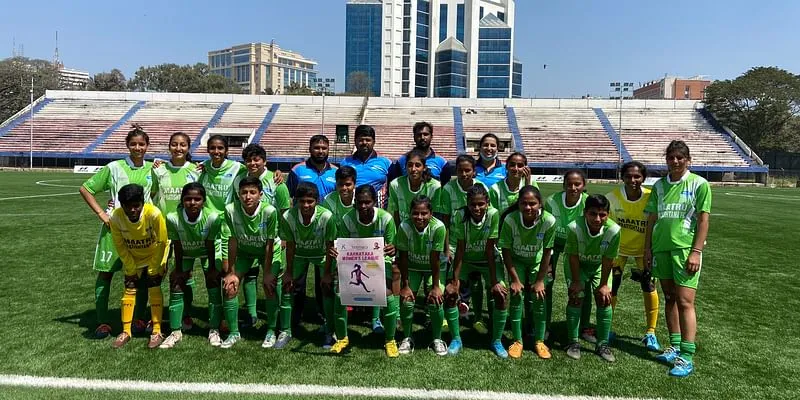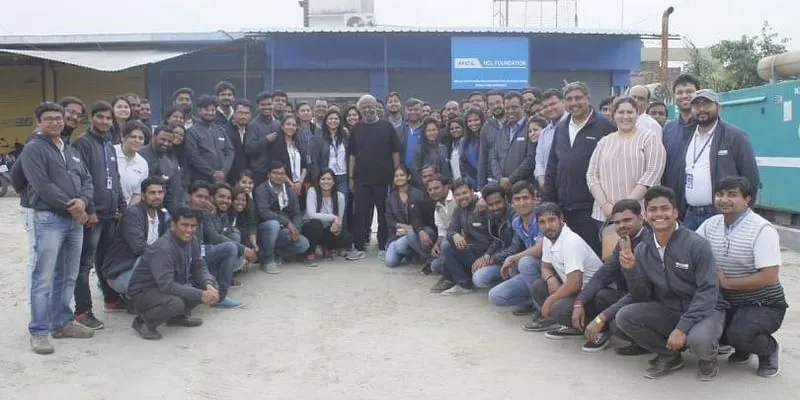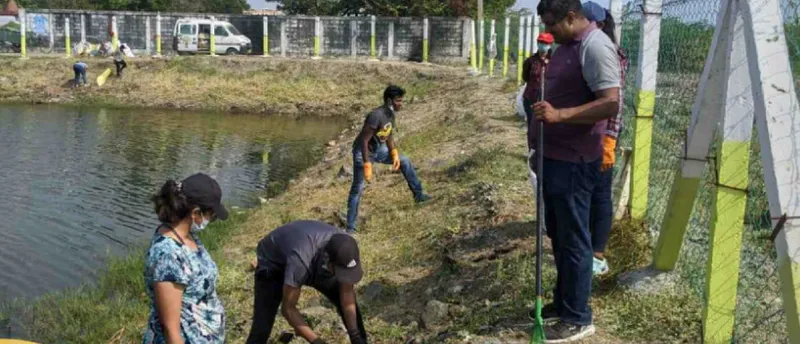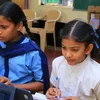How HCL Tech’s CSR arm is furthering the agenda of UN sustainable development goals
HCL Foundation has been making a difference in the lives of 1.8 million people through its social and environment-focused initiatives.
Harshita was excited to learn the concept of recycling. A UKG student in a Noida school, she wanted to attend the Swap Shop, a sustainability awareness event conducted by the HCL Foundation, the corporate social responsibility (CSR) arm of in India. But when she asked her mother for recyclable materials, she refused. Harshita was disappointed.
But she did not give up. She took her mother to school, where teachers explained the importance of recycling to her mother. Her mother was not only convinced about the idea but also vowed to become more conscious and dispose of her waste more responsibly.
Harshita is one of the 1.8 million people to be influenced by the HCL Foundation’s social initiatives.

The Foundation's Sports For Change initiative provides inclusive sporting experiences for children and youth from disadvantaged communities
The foundation has been helping communities in various regions of India for 10 years through its programmes and initiatives such as HCL Grant, HCL Uday, HCL Samuday, Clean Noida, Harit, Power of One, and Sports For Change.
The foundation’s agenda is shaped by 17 UN Sustainable Development Goals and national missions of the government, through which it aspires to create a comprehensive development framework, with a focus on 5 Ps: people, partnerships, planet, peace, and prosperity.
The foundation executes its missions by collaborating with a range of stakeholders on critical issues of water and sanitation, health and hygiene, early childhood care and development, education, livelihood, and the environment. It has partnered with at least 169 organisations worldwide to carry out its missions.
Social impact
“Though the HCL Foundation officially came about in 2011, its humanitarian journey predates its inception,” says Director Nidhi Pundhir. “Our CSR efforts commenced with volunteers contributing time and funds towards community development under Power of One.”
Power of One, HCL’s employee-volunteering initiative, is the cornerstone of the foundation’s work in urban neighbourhoods. The initiative is powered by contributions from each employee of HCL. Till March 2020, the company’s employees had clocked a total of over 487,000 hours in volunteering.
Since April 2020 Pundhir says that 678 HCL employees have clocked almost 2,200 digital volunteering hours by reaching out to at least 6,600 children, youth, and adults in their communities through online teaching, training, skill building, mentoring and guidance sessions.

Team gathered as a part of HCL Samuday (Image: HCL Foundation)
HCL Samuday was started in 2015 to develop a sustainable, scalable, and replicable model for rural development.
“HCL Uday started operations across 11 cities with an aim to strengthen the socio-economic ecosystem of communities and break the cycle of urban poverty using an integrated community development approach,” says Pundhir.
The foundation’s green initiative, Harit, is a response to the rapidly unfolding crisis of environmental degradation. It aims to conserve, restore, and enhance both micro and macro ecosystems, buffering the impact of climate change.
“We have been running all our programmes in 21 states and three union territories among rural communities, urban slums, and government schools,” she says. “Several afforestation and water rejuvenation projects are also being conducted in collaboration with government departments.”
Environmental impact
Apart from making a positive impact on people, HCL Foundation claims to have greened over 52,000 acres, rejuvenated 67 water bodies, and ensured the protection and treatment of more than 5,000 animals in rural and urban areas.
Support of partner organisations including NGOs and funding through CSR expenditure made it possible for the foundation to carry out its initiatives.

A snapshot of the Power of One initiative
HCL Foundation’s Clean Noida initiative, which aims to transform the city into one of the cleanest cities in the world, works at all levels of waste management including collection, transportation, and processing. As part of the initiative, e-garbage rickshaws to collect waste from households were also deployed.
Aminur Ali, who owns one of these vehicles, says: “While earlier I could cover only 100-150 houses at a time, the e-garbage rickshaw allows me to cover at least 300 houses in a shorter span of time. Covered on all sides, the rickshaw also eliminates the stench of garbage.”
“In FY20, the annual CSR expenditure of HCL Technologies was Rs 176.29 crore,” says Pundhir. “This year as well we are committed to ensuring all our programmes get the required support and funding.”
HCL Grant Edition VI
HCL Grant is another initiative that is part of the company’s CSR to support NGOs transforming rural areas. It aims to aid the social development ecosystem by formulating processes, creating strong governance frameworks, and institutionalising the not-for-profit sector.
In the five years of the grant’s existence, Rs 51.5 crore has been committed by the HCL Foundation for rural development.
This year, the event was held in February and it awarded winners in three categories — environment, health, and education. In the environment category, Bengaluru-based SAAHAS won the grant for its project on sustainable waste management through support to community-owned rural resource recovery systems.
In the health category, India Health Action Trust won for its project, “Improving maternal, newborn and child health outcomes”. Child Rights and You (CRY) won the grant in the education category for its project, “-Breaking barriers and rebuilding the lives of Bedia girls”.
Each of these projects aims to extensively cover many parts of rural India and support actions to uplift these areas. Through these efforts, the foundation seeks to extend its impact to a large number of people.
Edited by Lena Saha








